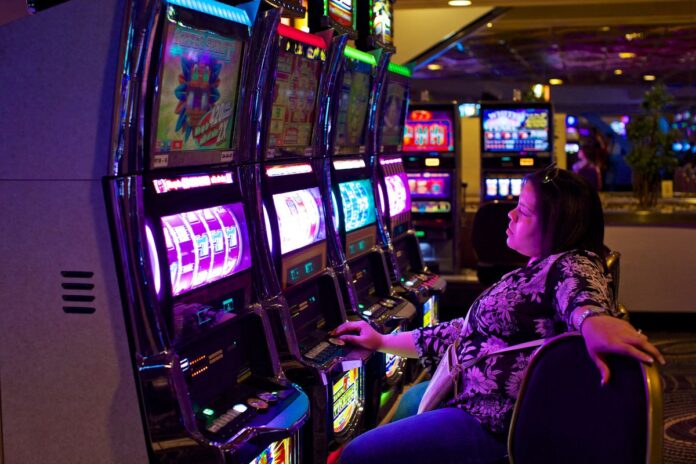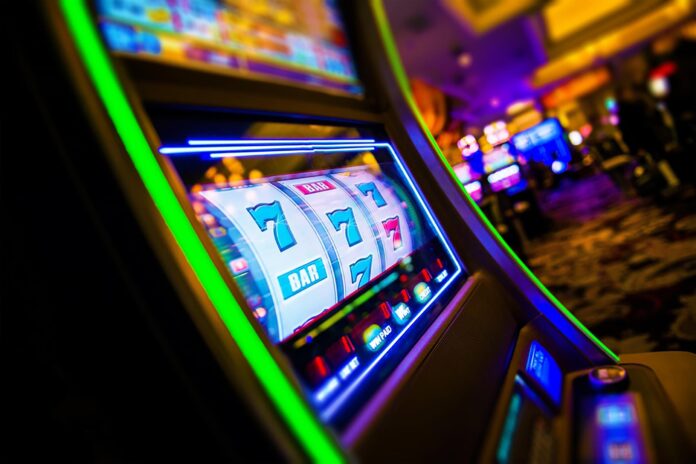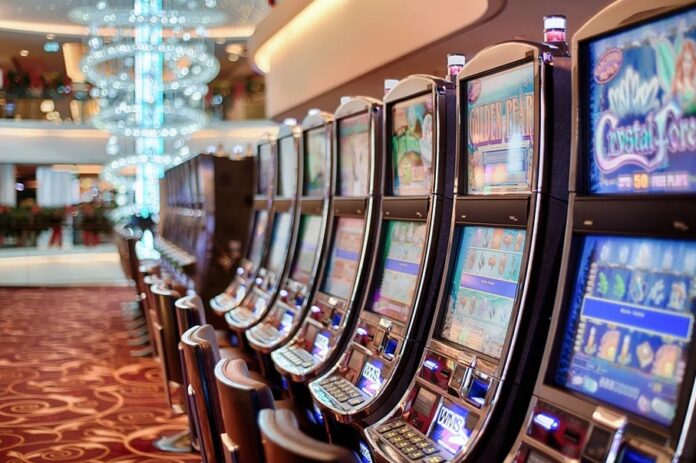Slot machines are a ubiquitous presence in the world of gambling, found in casinos, bars, and other establishments around the world. One of the main ethical considerations in slot machine design is their potential to cause addiction. Studies have shown that the flashing lights, sounds, and constant reinforcement provided by slot machines can create a highly addictive experience for some players. As a result, there is a fine line that designers and casinos must walk between creating an engaging game and exploiting vulnerable individuals.
With the rise of online gambling, real-money online casinos in Australia and beyond have made it easier than ever for people to access these games from the comfort of their own homes. However, as with any form of gambling, there are ethical considerations that must be taken into account when designing and marketing slot machines.

Playing with Fire: The Ethics of Behavioral Psychology in Slot Machine Design
Behavioral psychology techniques have been widely used in the design of slot machines to increase player engagement and encourage more play. These techniques include the use of variable rewards, which involve providing unpredictable and random rewards to players, and near-misses, which occur when the player comes close to winning but ultimately loses.
While these techniques can enhance the excitement and enjoyment of playing slot machines, they have also been criticized for their potentially manipulative nature. By tapping into players’ emotional and psychological responses, slot machine designers can create a sense of addiction and compulsion that can be difficult to resist.
Moreover, these techniques may be particularly harmful to vulnerable individuals, such as those with a history of addiction, mental health issues, or financial instability. It is important for designers and operators to take into account the potential impact of these techniques on vulnerable populations and ensure that they are not promoting unhealthy gambling behaviors.
One approach that has been suggested to address these ethical concerns is to design slot machines with features that promote responsible gambling behavior. This could include providing players with information about the odds of winning, offering self-exclusion programs, and implementing limits on the amount of time and money that can be spent on gambling.

Shedding Light on the Shadows: The Ethics of Transparency in Slot Machine Design
In addition to addiction and behavioral psychology, another ethical issue in slot machine design is the lack of transparency. When players engage with slot machines, they may not fully understand the odds of winning or the potential risks involved.
Many argue that slot machine designers should be more transparent about the odds of winning, as well as the risks associated with prolonged play. This information should be easily accessible and understandable for players. However, some designers may fear that providing too much information could actually discourage players from playing.
Moreover, the use of sounds, graphics, and other features can create the illusion of winning, even when the player is actually losing. This can lead to players making irrational decisions based on false beliefs about their chances of winning.
To address these concerns, some countries have implemented laws requiring slot machines to display the odds of winning, as well as information about responsible gambling resources. However, not all jurisdictions have such regulations in place, leaving players vulnerable to a lack of transparency.
Ultimately, the ethical question becomes: how much transparency is enough? While slot machine designers want to maintain a fun and engaging experience for players, they also have a responsibility to ensure that players are fully aware of the risks involved. Striking a balance between these two goals can be difficult, but it is essential for maintaining the integrity of the industry and protecting players from harm.

The Slippery Slope of Addiction: Navigating the Ethical Concerns of Slot Machine Design
One of the primary ethical concerns surrounding slot machine design is the potential for addiction. Many people enjoy playing slot machines as a harmless form of entertainment, but for some individuals, it can become a compulsive behavior that leads to negative consequences such as financial problems, relationship issues, and mental health struggles.
Slot machine designers have been criticized for creating games that are specifically engineered to keep players engaged for longer periods of time, by using techniques such as random rewards and near-misses. This can create a sense of excitement and anticipation that encourages players to continue playing, even when they are losing money.
Furthermore, the rise of online gambling has made it easier than ever for people to access slot machines and other forms of gambling. This increased accessibility has raised concerns about the potential for addiction, particularly among vulnerable populations such as young people and those with pre-existing mental health conditions.
To address these concerns, some jurisdictions have implemented measures such as mandatory responsible gambling information and resources, self-exclusion programs, and limits on the amount of time and money that can be spent on gambling. However, there is still much work to be done to ensure that slot machines are designed and marketed in an ethical and responsible manner.
It is important for designers, operators, and regulators to work together to create a safe and responsible gambling environment. This includes designing slot machines with features that encourage responsible play, providing clear information about the odds of winning and the risks of addiction, and offering resources for those who may be struggling with gambling-related issues. Ultimately, the goal should be to create a balanced and enjoyable experience for players, while also prioritizing their safety and well-being.

Striking a Balance between Fun and Responsibility in Slot Machine Design
Slot machines are a popular form of entertainment for many people, but they also have the potential to cause harm if not designed and marketed responsibly. As we have seen, there are several ethical considerations to take into account when creating slot machines, including addiction, the use of behavioral psychology, and transparency.
Designers and operators of slot machines must balance the desire to create an engaging and enjoyable experience for players with the responsibility to protect them from harm. This can be achieved through measures such as providing clear information about the odds of winning and offering resources for those who may be struggling with addiction.
Ultimately, it is up to the industry as a whole to prioritize ethics and responsibility in slot machine design, in order to ensure that this form of entertainment can be enjoyed safely and responsibly by all.









